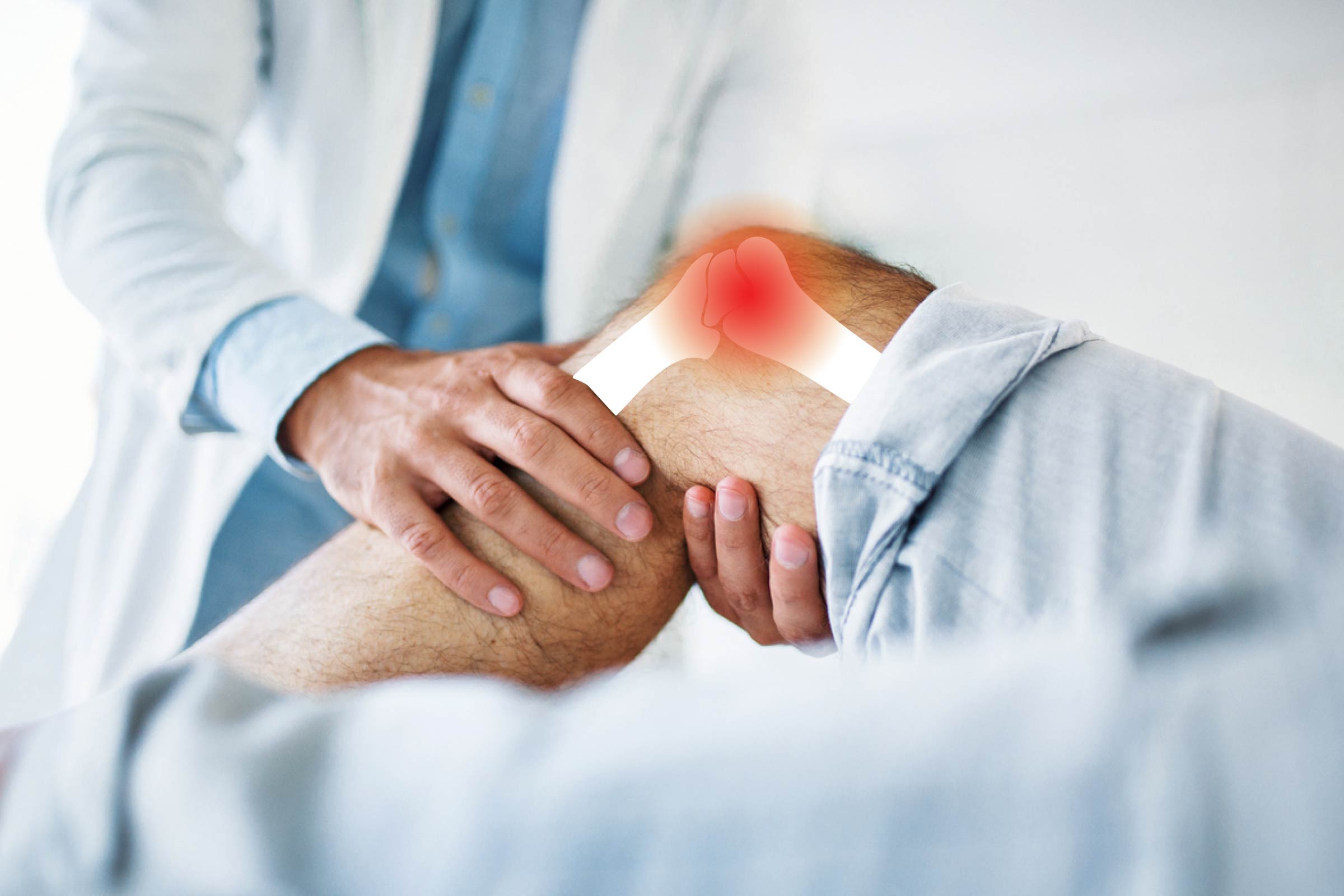
It’s not always an injury that’s behind your discomfort. In fact, arthritis symptoms can turn up in more than 100 conditions. Learn how you can help your doctor identify the source of your joint pain.
A GI disorder
Twenty percent of those diagnosed with Crohn’s disease or irritable bowel disease (IBD) may also have arthritic symptoms, says Howard R. Smith, MD, director of the Lupus Clinic, Department of Rheumatic and Immunologic Diseases at Cleveland Clinic. “I ask patients, ‘by the way, do you have diarrhea?’” he says. It’s often a surprise, as people rarely think that errant bathroom behavior could be related to joint issues. If a patient says yes, Dr. Smith sends them to a GI specialist, who will assess if a colonoscopy is needed.
A skin condition
“Why would you think a skin rash is related to joint pain?” says Dr. Smith. Most people don’t, but as a rheumatologist he’s always on the lookout for skin symptoms because of a condition called psoriatic arthritis, which affects up to 30 percent of people with psoriasis.
This is an inflammatory disease marked by raised, red, scaly patches on the skin. The condition also attacks joints and can cause permanent damage if left untreated. Your PCP can diagnose it with a physical exam, blood tests or an MRI. You may also be referred to a rheumatologist for treatment.
Lyme disease
Spread through the bite of a tick that’s infected with the Borrelia burgdorferi bacteria, Lyme infections can be very problematic. Often, people have no idea they’ve been bitten—and that tell-tale bulls-eye rash either doesn’t occur or isn’t noticed in up to one-quarter of infected people. Left untreated, Lyme can develop into arthritis in the joints—particularly pain or swelling in the knees. A blood tests can screen for the disease.
Your thyroid
Often, symptoms of a thyroid problem can masquerade as many other issues, including stress and poor sleep. Because your thyroid (the butterfly-shaped gland at the base of your neck) is in charge of so many body functions, an underactive gland (called hypothyroidism) slows your metabolism, leading to weight gain, constipation, fatigue, a sensitivity to cold, and, yes, joint pain. Talk to your doctor if you’re having these unexplained symptoms. A simple blood test can make the diagnosis.
Very rarely, bone cancer
Bone cancer only accounts for one percent of all cancers, with 2,300 new diagnoses made each year in the United States. That means it certainly won’t be the first suspect in joint pain. However, it can be the source of discomfort (which may be persistent or come and go) and swelling around the affected bone. Your doctor may order imaging tests to investigate further.

























